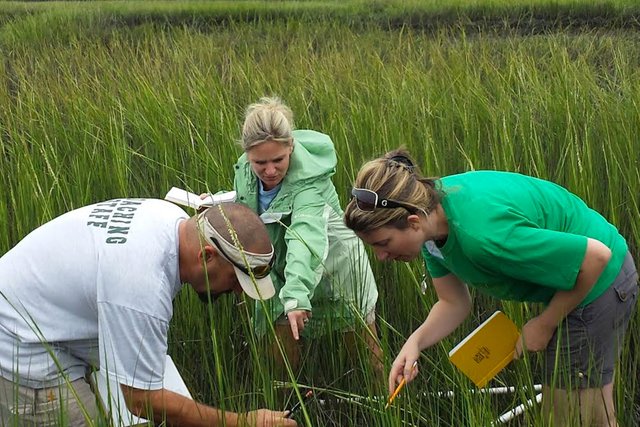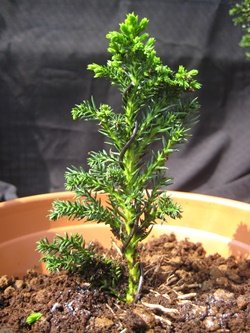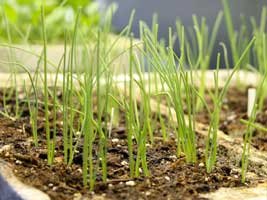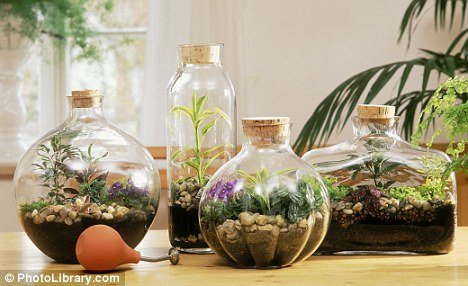You little naturalist, you! Part 1
There is much more to being a naturalist than simply collecting and identifying animals and plants.
Think about a Zoologist, an Ecologist and a Botanist. The Naturalist doesn't specialize in any of these fields but has an interest in all of them.

To be a naturalist, all you need to start with is an enquiring mind - and your eyes, ears, nose and hands. Use all your senses to gather information from the world around you, and keep a nature diary. These notes will will help you remember what you have seen, and they will be very useful if you join a natural history society.
A notebook and pencils are the main items of equipment but some other things like a clipboard, plastic containers and bags, binoculars, a magnifying glass, maps and compasses or GPS technology are all also very important to carry out different tasks.
Experimenting with plants
Plants are surprisingly aggressive and they compete with each other for light, water and food. This is something we would not have know if it wasn't for naturalists who took all their equipment and studied plants while writing all their findings down to share with others.
Thanks to them, we now know that plants grow from seed and spores and that the whole process is called germination. We also know that leaves are like solar panels that mix water and nutrients from the soil with carbon dioxide from the air and, using the sun's energy to turn them into food.
But HOW did they discover these things?
The simple answer is that they observed plants and leaves over time to come to a conclusion, but it's actually much more than that. It took time, patience, energy and lots and lots of experiments and trial-and-error to find out everything that is educational to the whole world today, and definitely makes part of every curriculum right across the globe.
The best thing about it all, is that YOU yourself can become a little explorer to rediscover everything.
Ways of watching germination:
These experiments will tell you something more about how it could be discovered:
- Place soil samples from different areas in shallow dishes, then keep them warm and moist to see what happens.
- Bake some soil in the oven to kill any seeds in it. Place it outdoors in a tray and in a few days seeds will germinate. Where did they come from?
- A bean, a glass jar and some blotting paper are all you need to grow a beanstalk. Watch the growth of roots and rootlets, stems and leaves. What can you learn?
Growing trees from seeds:

Collect seeds from trees in autumn. Remove their tough outer coverings and place each one in a pot with soil or compost. Keep the pots under cover outdoors through the winter and bring them indoors in the spring because germination may take months. Write down your findings and compare it with existing knowledge.
The fight for light:

Cover some grass seedlings with little foil caps. Watch how the ones without foil caps seek the light by bending towards it.
Make a bottle garden:

Put some gravel, then a bed of compost, in the bottom of a large glass or plastic container, and add a few pieces of decorative bark. Collect a variety of small ferns and mosses from your street or garden and press them carefully into the soil using a pair of sticks as tools. Dampen the soil well and then pack it down firmly with a cork on the end of a stick. Put the top back on the bottle very firmly to trap in all the moisture and then watch the plants grow with no further watering.
Have a close look at the ferns with your hand lens. Try growing them by collecting spores from underneath the leaves and putting them on a fragment of clay pot in a saucer of water.
Note each stage of growth as the spore develops into a new plant.
After observing the life of plants for a while, you may start calling yourself a naturalist, but that's not all.
Watch out for my next post to see what else a naturalist can do to discover nature and it's causes.

What a beautiful publication I am always interested in biology when I was in school, I feel that the process of growth in the plant and how it is forming is very nice to observe, simply nature is beautiful!
Nice post
I made bottle garden once.. Too bad I moved from my house to a new one so I had to throw it.. But, I think I'm gonna do it again, this post got me thinking ;)
this is a good thought of u.growing trees from seeds really good.bottol garden really good.i like gardening very much.i have a garden of my home.soil and compost very important of tree plant growing.thank u very much for ur good post sharing. @bdmomuae